Adrian Tchaikovsky's Blog, page 3
June 20, 2018
Recommendations Ralph
“GONNA REC IT!” as seen in Ralph II where the destructuve anti-hero takes up a quiet post in a library and guides people towards appropriate reading material.
Anyway, I am up to my eyeballs but want to get some book recs out there before I, hopefully, get the Clarkes shortlist written up (which, owing to a mountainous reading pile, may not happen, alas, but I’m reading as fast as I can so crossed fingers). I also have a little fanfare of my own for shortly-to-be-released business:
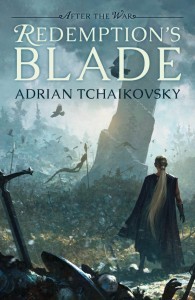 Coming out at the end of July from Rebellion is Redemption’s Blade, a heroic fantasy novel that was, frankly, one of the most fun projects I ever threw myself into. It’s a self-contained story intended to kick off a multi-author series, and the redoubtable Justina Robson is kicking off the second volume, Salvation’s Fire. The war against the Kinslayer is over, the free lands of the world are scarred and still frankly on fire in many places. Former allies eye each other nervously; entire nations live as refugees on the doorsteps of others, and the armies of the Kinslayer are still there, even though their leader is gone. Into this mess comes Celestaine, hero, owner of an infinitely sharp sword and Kinslayer-slayer. Into a world of monsters trying to be people and people becoming monstrous she seeks redemption by trying to put right even a little of all that has gone wrong. I had so much fun with this book, seriously. Please do give it a look. That excellent cover, by the way. is the work of Tomasz Jedruszek.
Coming out at the end of July from Rebellion is Redemption’s Blade, a heroic fantasy novel that was, frankly, one of the most fun projects I ever threw myself into. It’s a self-contained story intended to kick off a multi-author series, and the redoubtable Justina Robson is kicking off the second volume, Salvation’s Fire. The war against the Kinslayer is over, the free lands of the world are scarred and still frankly on fire in many places. Former allies eye each other nervously; entire nations live as refugees on the doorsteps of others, and the armies of the Kinslayer are still there, even though their leader is gone. Into this mess comes Celestaine, hero, owner of an infinitely sharp sword and Kinslayer-slayer. Into a world of monsters trying to be people and people becoming monstrous she seeks redemption by trying to put right even a little of all that has gone wrong. I had so much fun with this book, seriously. Please do give it a look. That excellent cover, by the way. is the work of Tomasz Jedruszek.
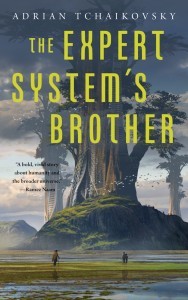 Also out next month (and apparently ‘frequently bought together’ with the above) is The Expert System’s Brother, my new SF novella from tor.com. This is something of a different tone: on an alien world, a community of humans live in harmony with nature… until you start to scratch the surface and find out their weird customs, the ghostly voices that possess them, the secret rituals that allow their children to live alongside the alien… or fail to. Handry falls by mischance into the latter category and is cast adrift into an infinitely hostile world. On his journey he’ll learn the truth behind everything his people do and believe. So this is hard SF told through the eyes of someone who doesn’t understand the science of it, which is one of my favourite SF modes as a reader (and which comes over a bit in Children of Time). Currently you can even read the first 2 chapters at Barnes and Noble if this sounds like your cup of Severance. The equally splendid cover here is by Raphael Lacoste.
Also out next month (and apparently ‘frequently bought together’ with the above) is The Expert System’s Brother, my new SF novella from tor.com. This is something of a different tone: on an alien world, a community of humans live in harmony with nature… until you start to scratch the surface and find out their weird customs, the ghostly voices that possess them, the secret rituals that allow their children to live alongside the alien… or fail to. Handry falls by mischance into the latter category and is cast adrift into an infinitely hostile world. On his journey he’ll learn the truth behind everything his people do and believe. So this is hard SF told through the eyes of someone who doesn’t understand the science of it, which is one of my favourite SF modes as a reader (and which comes over a bit in Children of Time). Currently you can even read the first 2 chapters at Barnes and Noble if this sounds like your cup of Severance. The equally splendid cover here is by Raphael Lacoste.
Anyway, on to the recs, which I’m kind of going to spin through without giving them the attention they deserve, but here we go:
 I’ve been showered with advance reader copies of things recently, more than I can honestly read, but few as welcome as Record of a Spaceborn Few, the third Becky Chambers book in the sequence that began with The Long Way to a Small Angry Planet. I have waved a big old flag for Chambers before, and I will absolutely continue to do so. Here, we learn about the human exodus that led to much of our species living on a fleet in space in a kind of powered commune, the society that evolved there out of need, and what is happening to that way of life now that alien contact means the old necessities just aren’t so necessary any more. It is a beautiful, thoughtful story about human societies, and unashamedly relevant to many aspects of modern society – the anxiety of an older generation whose culture is being eroded, the awkwardness of the distant descendant coming back to “find himself” without understanding the checks and balances.., It is an elegant, moving mosaic of a story and Chambers continues to be one of my favourite SF writers of all time.
I’ve been showered with advance reader copies of things recently, more than I can honestly read, but few as welcome as Record of a Spaceborn Few, the third Becky Chambers book in the sequence that began with The Long Way to a Small Angry Planet. I have waved a big old flag for Chambers before, and I will absolutely continue to do so. Here, we learn about the human exodus that led to much of our species living on a fleet in space in a kind of powered commune, the society that evolved there out of need, and what is happening to that way of life now that alien contact means the old necessities just aren’t so necessary any more. It is a beautiful, thoughtful story about human societies, and unashamedly relevant to many aspects of modern society – the anxiety of an older generation whose culture is being eroded, the awkwardness of the distant descendant coming back to “find himself” without understanding the checks and balances.., It is an elegant, moving mosaic of a story and Chambers continues to be one of my favourite SF writers of all time.
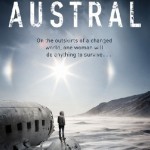 Also solid SF is Paul McAuley’s Austral, a magnificent piece of near future speculation. This is climate-change fiction of a very different manner to, say, Bacigalupi. In a fairly bleak but entirely livable future, Antarctica is no longer an icy hell, but merely a very cold new land ripe for occupation. Austral, our heroine, is a ‘husky’, a strain of human engineered for harsh, cold climates, convenient once and now disavowed by increasingly conservative (read: bigoted) governments. Worse, she can trace her line through to some very wealthy people indeed amongst her unmodified ancestors, meaning two things: One, that she’s am embarrassment they might want to get rid of; two, that she might just be planning some revenge of her own. McAuley has been a mainstay of the UK SF scene for a long time and Austral is a very powerful book.
Also solid SF is Paul McAuley’s Austral, a magnificent piece of near future speculation. This is climate-change fiction of a very different manner to, say, Bacigalupi. In a fairly bleak but entirely livable future, Antarctica is no longer an icy hell, but merely a very cold new land ripe for occupation. Austral, our heroine, is a ‘husky’, a strain of human engineered for harsh, cold climates, convenient once and now disavowed by increasingly conservative (read: bigoted) governments. Worse, she can trace her line through to some very wealthy people indeed amongst her unmodified ancestors, meaning two things: One, that she’s am embarrassment they might want to get rid of; two, that she might just be planning some revenge of her own. McAuley has been a mainstay of the UK SF scene for a long time and Austral is a very powerful book.
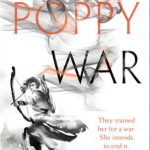 Moving into fantasy, I’ve read RF Kuang’s Poppy War and thoroughly enjoyed it. This is a kind of coming of age story set in a fantastical China. On the face of it, the story sounds quite archetypal: orphan child passes civil service exam, enters the elitist war college, discovers great gifts. It is not by any means Sun Tzu’s Harry Potter, however. Poppy War is one of the best examples of the subgenre I’ve ever read. It clips along, its central character is likeable and interesting, and her story is neither one of manifest destiny nor of incessantly being ground underfoot. And then she leaves school and goes to war, because this book has places to be and isn’t going to spend its entire length doing sums and cribbing off the student next to it. Kuang has an assured and enjoyable writing style, and the story balances a lightness in some parts with some extreme grimness in others.
Moving into fantasy, I’ve read RF Kuang’s Poppy War and thoroughly enjoyed it. This is a kind of coming of age story set in a fantastical China. On the face of it, the story sounds quite archetypal: orphan child passes civil service exam, enters the elitist war college, discovers great gifts. It is not by any means Sun Tzu’s Harry Potter, however. Poppy War is one of the best examples of the subgenre I’ve ever read. It clips along, its central character is likeable and interesting, and her story is neither one of manifest destiny nor of incessantly being ground underfoot. And then she leaves school and goes to war, because this book has places to be and isn’t going to spend its entire length doing sums and cribbing off the student next to it. Kuang has an assured and enjoyable writing style, and the story balances a lightness in some parts with some extreme grimness in others.
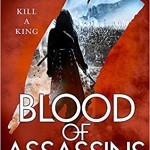 I was also lucky enough to get a copy of RJ Barker’s Blood of Assassins straight from the hand of the author. This is the sequel to last year’s excellent Age of Assassins and marks the first sequel to that little cluster of books I looked at back then. What grabbed me most about Blood is the shift of time. The hero has been places and seen things, and only now come back to the magic-scarred mess he calls a homeland. He’s screwed up, and the world is screwed up more, and there are enemies in every shadow trying to make sure that none of the would-be kings left over from the previous book’s climax can possibly fix it. Blood is a much darker book than Age, primarily because of the hero’s own personal journey and the places it’s taken him. I’m very much looking forwards to the third (King of Assassins, I think?) to see where it will go next.
I was also lucky enough to get a copy of RJ Barker’s Blood of Assassins straight from the hand of the author. This is the sequel to last year’s excellent Age of Assassins and marks the first sequel to that little cluster of books I looked at back then. What grabbed me most about Blood is the shift of time. The hero has been places and seen things, and only now come back to the magic-scarred mess he calls a homeland. He’s screwed up, and the world is screwed up more, and there are enemies in every shadow trying to make sure that none of the would-be kings left over from the previous book’s climax can possibly fix it. Blood is a much darker book than Age, primarily because of the hero’s own personal journey and the places it’s taken him. I’m very much looking forwards to the third (King of Assassins, I think?) to see where it will go next.
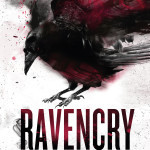 Also a book 2 from that crop, Ed McDonald’s Ravencry. If there is a day of reckoning for fantasy authors, where their characters turn up to demand an explanation for the crap they get put through, then were probably all doomed, frankly. McDonald, however, will still be enduring a kicking from Ryhalt Galharrow when the rest of us have crawled off to count our remaining teeth. I really enjoyed Blackwing, and Ravencry is a worthy sequel in which all manner of horrible things befall the unfortunate protagonist, and we learn some more about the Deep Kings and their minions. The ending does somewhat crank the whole show up to 11, but it’s a good read, full of soul-searching and punching people in the face in around equal measure.
Also a book 2 from that crop, Ed McDonald’s Ravencry. If there is a day of reckoning for fantasy authors, where their characters turn up to demand an explanation for the crap they get put through, then were probably all doomed, frankly. McDonald, however, will still be enduring a kicking from Ryhalt Galharrow when the rest of us have crawled off to count our remaining teeth. I really enjoyed Blackwing, and Ravencry is a worthy sequel in which all manner of horrible things befall the unfortunate protagonist, and we learn some more about the Deep Kings and their minions. The ending does somewhat crank the whole show up to 11, but it’s a good read, full of soul-searching and punching people in the face in around equal measure.
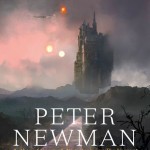 Last, but by no possible rational definition least, is Peter Newman’s The Deathless. This is that most frightening of things (for the author), the new series. I remember moving on from Shadows of the Apt myself, and it is a pants-wettingly terrifying period of anyone’s career, because you’ve basically built yourself a nice fort and now you have to go out into the wilderness and hope people send you food parcels until you’ve re-established yourself. Thankfully, The Deathless is a superb new offering – in tone and world it reminded me of Jen Williams’ excellent Ninth Rain, in that it manages to effortlessly combine extremely individual and relatable characters, humour and a very original (and, in both cases, rather nasty) fantasy world. Original world building is always my thing, as a reader, and The Deathless has all manner of fascinating new concepts worked seamlessly into the tapestry.
Last, but by no possible rational definition least, is Peter Newman’s The Deathless. This is that most frightening of things (for the author), the new series. I remember moving on from Shadows of the Apt myself, and it is a pants-wettingly terrifying period of anyone’s career, because you’ve basically built yourself a nice fort and now you have to go out into the wilderness and hope people send you food parcels until you’ve re-established yourself. Thankfully, The Deathless is a superb new offering – in tone and world it reminded me of Jen Williams’ excellent Ninth Rain, in that it manages to effortlessly combine extremely individual and relatable characters, humour and a very original (and, in both cases, rather nasty) fantasy world. Original world building is always my thing, as a reader, and The Deathless has all manner of fascinating new concepts worked seamlessly into the tapestry.
April 23, 2018
Books to the future!
Which is to say that I have some book recs but they’re some of them ARCs so some of these won’t be out for a while.
Usual apologies for the long paws, as Rex would say. My fairly decent excuse is that I have finally delivered (delivered three separate times in fact (1)) the MS for my sequel to Children of Time, which has gone through various working titles but is currently known as Children of Ruin (2). So that’s a thing, and a hell of thing it has turned out to be. Next up is another SF the details of which are still coalescing. In the interim, since my last post, The Hyena and the Hawk and my new Shadows of the Apt piece For Love of Distant Shores are both out and available, along with the mosaic novel Dracula: Rise of the Beast in which I have a novella, Noblesse Oblige, with the titular vampire going head to head with historical vampire Elizabeth Bathory.



On to the reading recs, with the due caveat that I’ve been reading a whole load recently and there will be plenty I should mention here that have unforgivably slipped my mind:
 Peter F. Hamilton is a name I suspect most of you will be more than familiar with, and I’ve had the considerable honour of a sneak peek at his upcoming book Salvation. This is ground floor in a new series, set in a future where portal technology is commonplace, and where a party of investigators is being sent to a distant star to a strange alien installation that looks to contain some very uncomfortable secrets. It’s a great book, but for a couple of reasons in particular. Firstly Hamilton plays some fun games with perspective and point of view – there’s a kind of Canterbury Tales element going on as we discover the histories of one of the investigators after another. Secondly, there is some real top notch speculative thinking about how the introduction of portals would revolutionise and change everything, from environmental engineering to simple daily living. One of my favourite sections is a murder investigation trekking through a house where every room is on a different continent or even planet, because if you have the money and the tech is there, why not? There’s also a hell of a twist and setup for the next book which, of course, I can’t talk about. It’s a fantastic read through, highly recommended.
Peter F. Hamilton is a name I suspect most of you will be more than familiar with, and I’ve had the considerable honour of a sneak peek at his upcoming book Salvation. This is ground floor in a new series, set in a future where portal technology is commonplace, and where a party of investigators is being sent to a distant star to a strange alien installation that looks to contain some very uncomfortable secrets. It’s a great book, but for a couple of reasons in particular. Firstly Hamilton plays some fun games with perspective and point of view – there’s a kind of Canterbury Tales element going on as we discover the histories of one of the investigators after another. Secondly, there is some real top notch speculative thinking about how the introduction of portals would revolutionise and change everything, from environmental engineering to simple daily living. One of my favourite sections is a murder investigation trekking through a house where every room is on a different continent or even planet, because if you have the money and the tech is there, why not? There’s also a hell of a twist and setup for the next book which, of course, I can’t talk about. It’s a fantastic read through, highly recommended.
 Next, and another truly remarkable piece of SF, is Emma Newman’s latest (released last week infact), Before Mars. This is the next after Planetfall and the Clarke-nominated After Atlas, and can be read on its own, though I think having read AA gives an extra frisson to it as you have a deeper insight into some of the supporting cast. Mars focuses on a geologist and artist shipped to Mars as something of a publicity shot to paint pictures of the red planet for luxury consumption back home. She is also fleeing her domestic situation and her family background, which get pieced out to us over the course of the book. This is the big commonality with the previous books: a sympathetic exploration of the inner traumas of the protagonist, something that Emma excels at. In this case, waking up already uncertain about reality after a journey spent in immersion, meeting a Mars that she can’t tell from the VR video games she used to play, the narrator finds herself starting to question everything around her: is it her, or is it Mars…? Genuinely gripping, and a worthy successor to the previous two, with at least one more to go, I am informed, in the series.
Next, and another truly remarkable piece of SF, is Emma Newman’s latest (released last week infact), Before Mars. This is the next after Planetfall and the Clarke-nominated After Atlas, and can be read on its own, though I think having read AA gives an extra frisson to it as you have a deeper insight into some of the supporting cast. Mars focuses on a geologist and artist shipped to Mars as something of a publicity shot to paint pictures of the red planet for luxury consumption back home. She is also fleeing her domestic situation and her family background, which get pieced out to us over the course of the book. This is the big commonality with the previous books: a sympathetic exploration of the inner traumas of the protagonist, something that Emma excels at. In this case, waking up already uncertain about reality after a journey spent in immersion, meeting a Mars that she can’t tell from the VR video games she used to play, the narrator finds herself starting to question everything around her: is it her, or is it Mars…? Genuinely gripping, and a worthy successor to the previous two, with at least one more to go, I am informed, in the series.
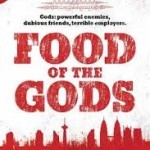 Food of the Gods collects Cassandra Khaw’s two novellas Rupert Wong, Cannibal Chef and Rupert Wong and the Ends of the Earth to bring us the titular character, formerly a very bad man bound for hell, now a very good chef bound to prepare all manner of anthropophagic delicacies for the ghouls of the Malaysian underworld (underworld in more ways than one). Rupert is one of the all-time likeable first person narrators. He doesn’t mince words (though he does everything else) in his frank exploration of clashes between pantheons, encounters with gods, dragons and monsters and culinary contests where there’s only a fine line between loser and next course. These books are hilarious, fast-paced, smartly written and well-plotted, with the added bonus of drawing from a whole huge section of mythology that western literature seldom gets to appreciate.
Food of the Gods collects Cassandra Khaw’s two novellas Rupert Wong, Cannibal Chef and Rupert Wong and the Ends of the Earth to bring us the titular character, formerly a very bad man bound for hell, now a very good chef bound to prepare all manner of anthropophagic delicacies for the ghouls of the Malaysian underworld (underworld in more ways than one). Rupert is one of the all-time likeable first person narrators. He doesn’t mince words (though he does everything else) in his frank exploration of clashes between pantheons, encounters with gods, dragons and monsters and culinary contests where there’s only a fine line between loser and next course. These books are hilarious, fast-paced, smartly written and well-plotted, with the added bonus of drawing from a whole huge section of mythology that western literature seldom gets to appreciate.
 Finally, Claire North, who wowed me utterly with The First Fifteen Lives of Harry August has absolutely done it again with The Sudden Appearance of Hope, which is as mind-blowing as its predecessor. When she was young, Hope started to fade out of people’s lives, until even her own family just forgot she existed the moment she left the room. Now she’s had a chance to adapt to her odd talent and is making a living as a very brash jewel thief, while slowly dying inside because she can’t connect to anyone human for longer than a single evening before she vanishes from their memories. The one person she’s real to is the police detective trying to catch her, and even then she only exists on paper, as a theory. Except that, all that, isn’t even what the book’s about, because her larceny opens the door on something very different and very sinister going on at a global level, creeping into people’s lives as invisibly as her… Hope, like August, a very weird twist on the superhero narrative, with the oddest superpowers imaginable, thought through to their fullest extent.
Finally, Claire North, who wowed me utterly with The First Fifteen Lives of Harry August has absolutely done it again with The Sudden Appearance of Hope, which is as mind-blowing as its predecessor. When she was young, Hope started to fade out of people’s lives, until even her own family just forgot she existed the moment she left the room. Now she’s had a chance to adapt to her odd talent and is making a living as a very brash jewel thief, while slowly dying inside because she can’t connect to anyone human for longer than a single evening before she vanishes from their memories. The one person she’s real to is the police detective trying to catch her, and even then she only exists on paper, as a theory. Except that, all that, isn’t even what the book’s about, because her larceny opens the door on something very different and very sinister going on at a global level, creeping into people’s lives as invisibly as her… Hope, like August, a very weird twist on the superhero narrative, with the oddest superpowers imaginable, thought through to their fullest extent.
(1) Submitted, submitted with some fairly hefty changes following agent comments, submitted once again after Nick Bradbeer got back to me with some rocket science comments.
(2) Not Peanut Butter Spider Time, sorry.
March 16, 2018
Autotrumpetry: New Releases for 2018
I’m on the very point of heading to Manchester for the Starburst Mediacity (1) film festival, where among other things I may get to guest on an episode of the Brave New Words podcast, but just a brief post on Things I Have Coming Out shortly or later this year.
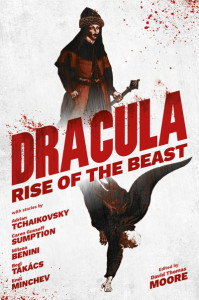 Firstly, I am one of a few contributors to Rebellion’s Dracula, Rise of the Beast, a series of novellas documenting the history of gothic literature’s most notorious monster. My contribution details a lifelong clash between the titular vampire and a historical one, namely Elizabeth Bathory, whose personal history just got more and more suitable for vampiric fictionalising as I researched it – not just the whole bathing in blood business, but that her warmonger husband enthusiastically adopted the trademark practices of Vlad the Impaler, for example. Ghastly people, but useful to your humble chronicler.
Firstly, I am one of a few contributors to Rebellion’s Dracula, Rise of the Beast, a series of novellas documenting the history of gothic literature’s most notorious monster. My contribution details a lifelong clash between the titular vampire and a historical one, namely Elizabeth Bathory, whose personal history just got more and more suitable for vampiric fictionalising as I researched it – not just the whole bathing in blood business, but that her warmonger husband enthusiastically adopted the trademark practices of Vlad the Impaler, for example. Ghastly people, but useful to your humble chronicler.
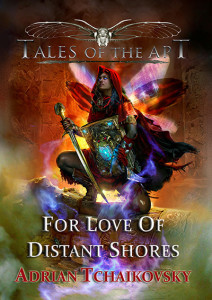 Next up, and being released in just a couple of weeks at Eastercon in Harrogate is the latest offering from the Tales of the Apt series, For Love of Distant Shores from Newcon Press. I am particularly excited about this one. It is also a series of novellas following the same pair of characters through the less-explored areas of the SotA world. A few familiar names drift through the narrative but mostly we’re following Doctor Phinagler and his long-suffering assistant as they plumb depths and the far places of the world for good old Collegiate scholarship, uncover horrible secrets, meet new kinden and eventually discover a secret that has ramifications beyond the actual SotA series itself. The cover art is by Jon Sullivan, whose iconic work helped shape the series in its early days.
Next up, and being released in just a couple of weeks at Eastercon in Harrogate is the latest offering from the Tales of the Apt series, For Love of Distant Shores from Newcon Press. I am particularly excited about this one. It is also a series of novellas following the same pair of characters through the less-explored areas of the SotA world. A few familiar names drift through the narrative but mostly we’re following Doctor Phinagler and his long-suffering assistant as they plumb depths and the far places of the world for good old Collegiate scholarship, uncover horrible secrets, meet new kinden and eventually discover a secret that has ramifications beyond the actual SotA series itself. The cover art is by Jon Sullivan, whose iconic work helped shape the series in its early days.
 Third out, at the start of April, is The Hyena and the Hawk, third and concluding volume of the Echoes of the Fall series from Pan Macmillan. Anyone who’s got as far as the end of The Bear and the Serpent is probably wondering ‘How the hell is he going to dig himself out of that hole?’ and now you get the chance to find out. Also released at the same time will be the audiobooks for all three Echoes of the Fall novels, which are being read by Kyla Garcia. I should also give a shout out for the beautiful cover design by Neil Lang for all three books of Echoes. The trio together look incredible.
Third out, at the start of April, is The Hyena and the Hawk, third and concluding volume of the Echoes of the Fall series from Pan Macmillan. Anyone who’s got as far as the end of The Bear and the Serpent is probably wondering ‘How the hell is he going to dig himself out of that hole?’ and now you get the chance to find out. Also released at the same time will be the audiobooks for all three Echoes of the Fall novels, which are being read by Kyla Garcia. I should also give a shout out for the beautiful cover design by Neil Lang for all three books of Echoes. The trio together look incredible.
 Finally, due out a bit later this year (July) is Redemption’s Blade, first book of After the Fall, a new fantasy series from Rebellion. The war is over, the dark lord done for, and now the armies of the free have to pick themselves up out of the wreckage and remember that they don’t actually like each other very much, and now everyone has troops in everyone else’s back yard, and just what do you do with all those monsters and evil legions that have failed to conveniently vanish away with their evil master. War profiteers, glory hounds, refugees, religious persecution, and Celestaine, labouring under the burden of being the wielder of the sword that did for the dark lord, is setting out to try and fix the world somehow. I had more fun writing this than just about anything else, so I hope it makes a splash when it hits the shelves.
Finally, due out a bit later this year (July) is Redemption’s Blade, first book of After the Fall, a new fantasy series from Rebellion. The war is over, the dark lord done for, and now the armies of the free have to pick themselves up out of the wreckage and remember that they don’t actually like each other very much, and now everyone has troops in everyone else’s back yard, and just what do you do with all those monsters and evil legions that have failed to conveniently vanish away with their evil master. War profiteers, glory hounds, refugees, religious persecution, and Celestaine, labouring under the burden of being the wielder of the sword that did for the dark lord, is setting out to try and fix the world somehow. I had more fun writing this than just about anything else, so I hope it makes a splash when it hits the shelves.
(1) And, because I’m fond of the film, Megamind, my internal monologue does pronounce it with the emphasis on the ‘a’.
February 18, 2018
Another shot in the pods (plus book news)
Been a while, usual reasons. In this case the endgame of Children of Time 2 (Arachnid Boogaloo) is very mind-consuming, as indeed are some of the things contained therein.
So: I’m moved to do a brief post about podcasts, as it’s been a long old while. I’m particularly moved to this because a number of podcasts I’ve been listening to for years have closed their doors or had a significant change of staff. I appreciate this: podcasting is a crapton of work for something that is given away mostly for free. There’s going to come a time when other demands will take over the lives of the presenters, and that’s a natural thing. I therefore salute the passing of Dissecting Worlds, one of the first podcasts I ever listened to, and also The Writer and the Critic, both of which will be greatly missed. I’m also waiting to see if another of my favourites, Blurry Photos, will find its feet after losing 50% of its presenters (1 of 2), though so far it is clinging on there.
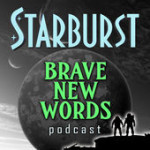 In rather happier podcast news, the Brave New Words cast, formerly the Starburst Bookworm podcast and still a part of the Starburst magazine family, is holding a new award, also by the name of Brave New Words. This is an award for a body of work, not just a particular book, and the shortlist reflects this. We have Jeanette Ng (whose Under the Pendulum Sun is something I’ve already written about), Claire North (Whose The First 15 Lives of Harry August is something I’ve already rhapsodised about, but in this case is flagged up for The Sudden Appearance of Hope which in fact is even better, one of the most elegant, intricate and emotionally affecting books I ever read), Cassandra Khaw (whose Food of the Gods I have read, and it’s excellent, and here is in particular singled out for her short story ‘Degrees of Ellision’), Margrét Helgadóttir for her editorial work at Fox Spirit (specifically Pacific Monsters, one of her world monster series, the European volume of which I was lucky enough to contribute towards) and Katie Khan (who to my shame I don’t know, but I’ve got her Hold Back the Stars to read.) And finally, your humble author, specifically for Dogs of War which Ed and Al and the gang gave a lovely review to a little while back. I will be at the Starburst Mediacity film festival for the awards where I will enthusiastically applaud the winner, whoever she is.
In rather happier podcast news, the Brave New Words cast, formerly the Starburst Bookworm podcast and still a part of the Starburst magazine family, is holding a new award, also by the name of Brave New Words. This is an award for a body of work, not just a particular book, and the shortlist reflects this. We have Jeanette Ng (whose Under the Pendulum Sun is something I’ve already written about), Claire North (Whose The First 15 Lives of Harry August is something I’ve already rhapsodised about, but in this case is flagged up for The Sudden Appearance of Hope which in fact is even better, one of the most elegant, intricate and emotionally affecting books I ever read), Cassandra Khaw (whose Food of the Gods I have read, and it’s excellent, and here is in particular singled out for her short story ‘Degrees of Ellision’), Margrét Helgadóttir for her editorial work at Fox Spirit (specifically Pacific Monsters, one of her world monster series, the European volume of which I was lucky enough to contribute towards) and Katie Khan (who to my shame I don’t know, but I’ve got her Hold Back the Stars to read.) And finally, your humble author, specifically for Dogs of War which Ed and Al and the gang gave a lovely review to a little while back. I will be at the Starburst Mediacity film festival for the awards where I will enthusiastically applaud the winner, whoever she is.
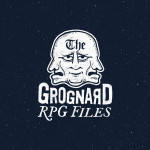 So, in other happy podcast news, many of my mainstays are still on the road, including the Hugo-Award winning Tea and Jeopardy (author interviews with Emma Newman disrupted by a demonic butler), The Good Friends of Jackson Elias (Cthuloid and other horror in films, books and especially RPGs), Geek Syndicate (Geek media and general weaponised sass), Revolutions (history, currently counting down through the tumultuous year of 1848), and Palaeo After Dark (Three drunk palaeontologists discuss schienshce.) Two of my most recent acquisitions are The Grognard Files, a remarkably entertaining trip down memory lane for the RPGer of a certain age as Dyrk & co discuss the games of yesteryear, and, as of the start of the year, The Hammer House of Podcast, where Paul Cornell and LM Myles have just started to talk through the entire Hammer canon (only 2 films in so it’s a good one to grab now while it’s easy to catch up) with their usual mix of erudition and elbow-jostling.
So, in other happy podcast news, many of my mainstays are still on the road, including the Hugo-Award winning Tea and Jeopardy (author interviews with Emma Newman disrupted by a demonic butler), The Good Friends of Jackson Elias (Cthuloid and other horror in films, books and especially RPGs), Geek Syndicate (Geek media and general weaponised sass), Revolutions (history, currently counting down through the tumultuous year of 1848), and Palaeo After Dark (Three drunk palaeontologists discuss schienshce.) Two of my most recent acquisitions are The Grognard Files, a remarkably entertaining trip down memory lane for the RPGer of a certain age as Dyrk & co discuss the games of yesteryear, and, as of the start of the year, The Hammer House of Podcast, where Paul Cornell and LM Myles have just started to talk through the entire Hammer canon (only 2 films in so it’s a good one to grab now while it’s easy to catch up) with their usual mix of erudition and elbow-jostling.
Finally, some news of my own. Firstly, The Hyena and the Hawk will be coming out in the first week of April, a little later than I’d thought, but that seems to be a firm date now. Before then, Easter will see the release of For Love of Distant Shores, the third collection of ‘Tales of the Apt’. This one is a little different as, instead of a set of unrelated shorts, it features four linked novellas with the same lead characters. Also, anyone who’s read the Echoes of the Fall books and ended up thinking “Hold on, are those guys…?” may want to check this out. Finally, just announced from Tor.com, I have a new novella coming out entitled The Expert System’s Brother. This is a nice piece of full-on alien world and ecology SF, and the cover by Raphael Lacoste is phenomenal.
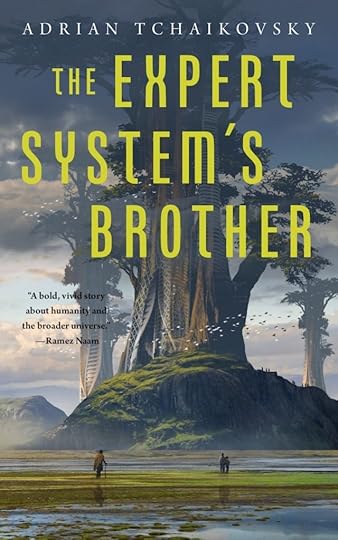
December 30, 2017
That was the 2017 that was.
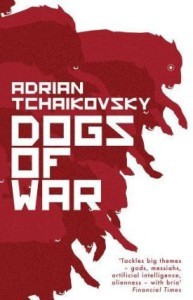 2017 has been a good year for me, which goes rather against the tide of crap stuff happening globally. The BFS Holdstock award for The Tiger and the Wolf was particularly nice, and I’ve got three books out somehow – The Bear and the Serpent, Ironclads, and Dogs of War, which has just made the Guardian “best recent SF” list, which is particularly pleasant. Children of Time goes on in leaps and bounds with the audiobook and the film option, and Pan Macmillan has started its own audiobook production with Guns of the Dawn (more to come).
2017 has been a good year for me, which goes rather against the tide of crap stuff happening globally. The BFS Holdstock award for The Tiger and the Wolf was particularly nice, and I’ve got three books out somehow – The Bear and the Serpent, Ironclads, and Dogs of War, which has just made the Guardian “best recent SF” list, which is particularly pleasant. Children of Time goes on in leaps and bounds with the audiobook and the film option, and Pan Macmillan has started its own audiobook production with Guns of the Dawn (more to come).
Looking to the wider genre, this has been a cracking year all round for books (see posts passim), including some phenomenl debuts – the 2018 award scene is going to be particularly interesting, in particular the Morningstar debut award in the Gemmells. The convention scene has been fun this year too, especially the Helsinki Worldcon (although I reserve a particular fondness for my GoH stint at Novacon).
 And I loved the new Star Wars film, for the record. I am working up to some detailed thoughts about pros and cons, and just how bold that film really was, for a SW film and for a big budget actioner in general.
And I loved the new Star Wars film, for the record. I am working up to some detailed thoughts about pros and cons, and just how bold that film really was, for a SW film and for a big budget actioner in general.
2018 is going to see three more offerings. February or March will pop out The Hyena and the Hawk which will bring a conclusion to the Echoes of the Fall series. Eastercon will lunch For Love of Distant Shores, a new Shadows of the Apt collection/novel – it’s a bit in the middle as this one is four linked novellas. Shores will also shed some light on just what the hell is going on in some other fantasy writing of mine, and once it and Hyena are out I will be putting together a big old spoiler-laden post setting out all the details for those who want the lore of it.  Finally, around July will be my entirely new epic fantasy offering, Redemption’s Blade, the first book of Rebellion/Solaris’s After The War series, which I had an indecent amount of fun writing. The book picks up after the traditional War-Against-The-Dark-Lord and looks at the question of what happens next, now that all the Nations of the Free are on a war footing, half the world is on fire and there are still rather a lot of Dark Minions around the place. There is also a novella floating around to come from Tor.com, but I’m not sure when the release date is for that.
Finally, around July will be my entirely new epic fantasy offering, Redemption’s Blade, the first book of Rebellion/Solaris’s After The War series, which I had an indecent amount of fun writing. The book picks up after the traditional War-Against-The-Dark-Lord and looks at the question of what happens next, now that all the Nations of the Free are on a war footing, half the world is on fire and there are still rather a lot of Dark Minions around the place. There is also a novella floating around to come from Tor.com, but I’m not sure when the release date is for that.
Convention-wise, I am currently planning to be at Eastercon, Nine Worlds, Fantasycon, Edge Lit and I’ll probably be back at Novacon given how much fun that was. I have also been invited to Copernicon in Torun, Poland, and SFerakon in Croatia. There was some word of a French visit as well, as the French language edition of Children of Time is coming out next year, but that hasn’t been finalised yet.
December 22, 2017
A Year in Comics: 2017
I don’t think I’ve done one of these before, but I’ve got through a lot of graphic novels this year, and so I might as well round off the round ups by flagging some up that I’ve particularly enjoyed. In fact, as this is the medium I probably re-read the most, I’ll make it a game of two halves. Firstly, 6 new works that stood out this year, and then 6 series I find myself returning to time and again.
Pick of 2017
To be fair, these aren’t necessarily books that came out in 2017, just ones I discovered then, but these are the titles that really grabbed me this year, in no particular order.
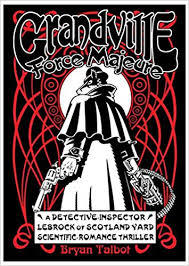 Grandville : Force Majeure (Bryan Talbot) – Talbot is one of the long-time great British comics writers/artists, going back to seminal titles like The Adventures of Luther Arkwright. The Grandville series has been going a while and this is, I think, its final volume. It’s a world of anthropomorphic animals and, simultaneously, an alt-history where Napoleon conquered Britain and the country only recently won its independence, and where Grandville – Paris – remains the cultural giant. It’s a crime thriller about a badger police inspector, LeBrock, who’s three parts hero and two parts monster, a kind of animal Judge Dredd in a world of grime, corruption and gang warfare. It’s also incredibly violent, so you have to have a certain tolerance for some graphic bloodshed.
Grandville : Force Majeure (Bryan Talbot) – Talbot is one of the long-time great British comics writers/artists, going back to seminal titles like The Adventures of Luther Arkwright. The Grandville series has been going a while and this is, I think, its final volume. It’s a world of anthropomorphic animals and, simultaneously, an alt-history where Napoleon conquered Britain and the country only recently won its independence, and where Grandville – Paris – remains the cultural giant. It’s a crime thriller about a badger police inspector, LeBrock, who’s three parts hero and two parts monster, a kind of animal Judge Dredd in a world of grime, corruption and gang warfare. It’s also incredibly violent, so you have to have a certain tolerance for some graphic bloodshed.Paper Girls (Brian K Vaughan and Cliff Cheney) There are a lot of recent comics about teenagers and kids breaking out of the world into something wilder and weirder. My pick of them is this, the story of four girls (literally paper girls, as in they deliver newspapers) whose reality comes apart at the seams and who end up travelling in space and time, getting involved in conflicts that are nothing to do with them and generally just trying to keep their hides together when the world goes mad. Plus giant tardigrades, so what’s not to like?
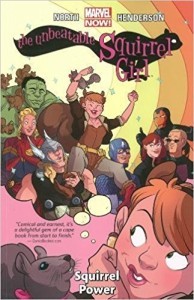 The Unbeatable Squirrel Girl (Ryan North and Erica Henderson). My Marvel comics reading tends to the periphery and the odd characters, but I have picked up quite a few recently – including Ms Marvel, Moon Girl and Devil Dinosaur and Al Ewing’s recent Rocket as mentioned in my film post. My absolute favourite remains this run of Squirrel Girl, which is hysterically funny whilst also slotting very nicely into the wider Marvel Universe (ish – it has a touch of Next Wave to it (see below) in that the other Marvel heroes and villains aren’t necesarily 100% themselves – or maybe they’re 110% themselves. But it’s great, and I love it.
The Unbeatable Squirrel Girl (Ryan North and Erica Henderson). My Marvel comics reading tends to the periphery and the odd characters, but I have picked up quite a few recently – including Ms Marvel, Moon Girl and Devil Dinosaur and Al Ewing’s recent Rocket as mentioned in my film post. My absolute favourite remains this run of Squirrel Girl, which is hysterically funny whilst also slotting very nicely into the wider Marvel Universe (ish – it has a touch of Next Wave to it (see below) in that the other Marvel heroes and villains aren’t necesarily 100% themselves – or maybe they’re 110% themselves. But it’s great, and I love it.This Damned Band (Paul Cornell and Tony Parker) My memory may be tricking me on this one, and it might have been a 2016 discovery, but I didn’t do a post on comics in 2016 (unless my memory is screwing with me even more than I think) and Band sure as hell sticks in the mind. This is a lovely little self-contained miniseries about a badass rock band of certain age, glory days somewhat behind them but still touring, and how about all those rumours that they sold their souls to the devil back in the day? How much of their reputation is fluff to sell albums to impressionable kids, and how much is real Goetic bad stuff only now coming home to roost. This is a marvellous series, and it seemed to come and go without a fraction of the attention it deserved. Highly recommended.
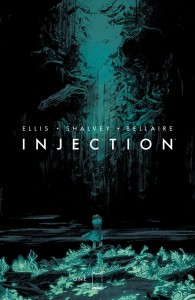 Injection (Warren Ellis, Declan Shalvey, Jordie Bellaire) – this is another of the “weird things clash with reality” genre, which seems a popular take at the moment. I wanted to fit Casanova Acedia in the list somewhere, and even the historical weird of Manifest Destiny, but a long think persuaded me that Injection should make the spot. This title (recommended to me by Geek Syndicate) is about five exceptional people – a spy, a detective, a hacker, a leader and a hedge magician, who get together and decide that Something must be Done. And so they do it, and the comic is about them living with the repercussions of that and trying to keep down the thing they unleash. It is a vicious, driven dive into mythology and singularity, a future thing that dresses up in the trappings of the past and becomes what people have always believed in. It is also beautifully written and drawn, and one of those comics where the very layout and use of panels is effortlessly excellent.
Injection (Warren Ellis, Declan Shalvey, Jordie Bellaire) – this is another of the “weird things clash with reality” genre, which seems a popular take at the moment. I wanted to fit Casanova Acedia in the list somewhere, and even the historical weird of Manifest Destiny, but a long think persuaded me that Injection should make the spot. This title (recommended to me by Geek Syndicate) is about five exceptional people – a spy, a detective, a hacker, a leader and a hedge magician, who get together and decide that Something must be Done. And so they do it, and the comic is about them living with the repercussions of that and trying to keep down the thing they unleash. It is a vicious, driven dive into mythology and singularity, a future thing that dresses up in the trappings of the past and becomes what people have always believed in. It is also beautifully written and drawn, and one of those comics where the very layout and use of panels is effortlessly excellent.Porcelain (Benjamin Read and Chris Wildgoose) I have just put down the third volume of this series, which is why these lists are running to 6 and not 5. Porcelain is an industrial fantasy about post-humanism and artificial intelligence (and that, frankly, is a bit of a sweet spot for me, that I have picked at in my own writing more than once). There is a man in a city who lives as a rich recluse, and crafts golems that do many useful things. He takes under his wing an urchin girl, and then she discovers his secret, and then… and then… I can’t go more into the plot without spoiling it, and the brutal historical inevitability of the way things go mixes with the unsavoury secrets at the heart of the golemnist’s art. Also, this is one of the most visually striking series I’ve come across.
Yes, I know I said 6, but, look, there’s also this unique little gem, A Land Called Tarot (Gael Betrand), a single hardback volume with not a word in sight, a purely visual odyssey through a wondrous fantasy world – travels, transformations, court politics, all of it looking as though it could be an undiscovered Ghibli cartoon. This is just a beautiful, beautiful book and I’ve already read through it several times, just for the joy of all the small details.
And now for the old favourites. I’ve had most of these for many years, and I probably read each of them at least once a year, for various reasons.
Captain Britain and MI:13 (amongst others, Alan Moore, Alan Davies, Paul Cornell and Leonard Kirk) I am probably cheating right out of the gate, because this covers a whole crapton of comics. My usual start-point for a re-read is from just before when Moore’s Jasper’s Warp storyline kicks off, then all the way through that and out the other side into the post-Warp rebuilding, the Warpies, Slaymaster, then I generally pick up with the Wisdom standalone, then Cornell’s fantastic MI:13 run, except this year I Did The Thing people my age who get a bit of money in their pocket do, which is re-buy those comics they collected back in the 90’s, which for me means Excalibur, so this single entry on the list now represents a ridiculous cornucopia of Marvel’s finest.
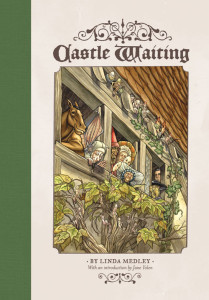 Castle Waiting (Linda Medley) I came across this gem just when my son had just been born and my world was going completely nuts, and it kept me sane. Castle Waiting (2 volumes out and I am extremely excited that a third may be in the offing) is a unique, gentle story, set in a fantasy world more fairy tale than Tolkien. It’s about Sleeping Beauty, near enough, except it’s about what happens to the castle and its staff after that princess walks out on them to go have her happy ever after. The castle becomes a refuge for the lost, the damaged and the needy, a cast of mutually supportive characters whose stories wind through each other like vines: the wise but irreverent nun, the young mother on the run, the bird-headed and finicky steward, the haunted plague doctor and so many more. It’s heartwarming, it’s tragic, it’s quite different to anything else I’ve read.
Castle Waiting (Linda Medley) I came across this gem just when my son had just been born and my world was going completely nuts, and it kept me sane. Castle Waiting (2 volumes out and I am extremely excited that a third may be in the offing) is a unique, gentle story, set in a fantasy world more fairy tale than Tolkien. It’s about Sleeping Beauty, near enough, except it’s about what happens to the castle and its staff after that princess walks out on them to go have her happy ever after. The castle becomes a refuge for the lost, the damaged and the needy, a cast of mutually supportive characters whose stories wind through each other like vines: the wise but irreverent nun, the young mother on the run, the bird-headed and finicky steward, the haunted plague doctor and so many more. It’s heartwarming, it’s tragic, it’s quite different to anything else I’ve read.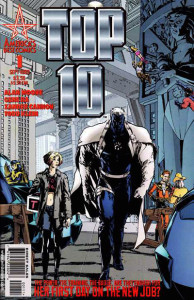 Top Ten (Alan Moore, Gene Ha, Zander Cannon) Another Moore, but hey, it’s Alan Moore. I like a great deal of Moore, but this underappreciated masterwork is my absolute favourite, save perhaps for the Special Executive section of Captain Britain, above. There are a lot of comics about superhero police. This is the one that clicks for me. 10th Precinct is in a city where everyone has powers, and yet it manages to be a serious police procedural, touching on superheroic variations of familiar crimes. It is funny, the characters are all wonderful, major and minor alike, it is full of tiny details, call-backs and comics jokes so that every page is a feast for the eyes, and it is also brutal A F when it needs to be. One of Moore’s lesser-known shards of genius is that he writes The Big Fight in comics like nobody else (or inspires his artists to put it over) – he does it with the Special Executive vs the Fury in Cap Britain and he does it in Top Ten. My re-read list is usually the two Moore volumes, Smax and 49’ers, for the record.
Top Ten (Alan Moore, Gene Ha, Zander Cannon) Another Moore, but hey, it’s Alan Moore. I like a great deal of Moore, but this underappreciated masterwork is my absolute favourite, save perhaps for the Special Executive section of Captain Britain, above. There are a lot of comics about superhero police. This is the one that clicks for me. 10th Precinct is in a city where everyone has powers, and yet it manages to be a serious police procedural, touching on superheroic variations of familiar crimes. It is funny, the characters are all wonderful, major and minor alike, it is full of tiny details, call-backs and comics jokes so that every page is a feast for the eyes, and it is also brutal A F when it needs to be. One of Moore’s lesser-known shards of genius is that he writes The Big Fight in comics like nobody else (or inspires his artists to put it over) – he does it with the Special Executive vs the Fury in Cap Britain and he does it in Top Ten. My re-read list is usually the two Moore volumes, Smax and 49’ers, for the record.Umbrella Academy (Gerard Way and Gabrial Ba) is another two book series, the third of which (if it happens) is direly anticipated. Also, like a lot of my picks, it’s very funny while also being utterly vicious when it wants, so I guess that says something about my taste. It’s the story of children born with strange powers, taken in by a stranger Man Of Mystery and unsuitable father figure, who made them into a crime-fighting force. And now they’re grown up and split up, except the death of their mentor brings them back together. It’s a story of the damaged, although unlike Castle Waiting the mutually supportive part isn’t really there and they fight like cats and dogs, or like most real siblings. It’s a bizarre and ingenious creation.
Nextwave (Warren Ellis and Stuart Immonen) is a Marvel comic simultaneously denied and embraced by that tangled continuity. It’s the story of a bunch of not-particularly-heroic heroes who find that the not-quote-SHIELD government agency that hired them has been bought out by terrorists, and so they set out to thwart the terrorists’ plans, no matter how utterly bonkers those plans turn out to be. It’s bleak humour all the way, and yet there is a solid core of good characterisation, pathos and proper superhero determination at the heart of it. And lots and lots of digressions and flashbacks, and plenty of stuff that throws a really, really different light on various parts of the Marvel universe.
Gilgamesh II (Jim Starlin) is an oldie, a non-canonical DC work produced in four small graphic novel(la?)s. It is a profoundly thoughtful SF retelling of the great epic, certainly my first experience of the story, has a real 2000AD sensibility to its world look and feel, and in the last volume especially goes to some very strange places. I remember coming across this in the comics shop in Lincoln when I was a teenager and having my mind blown, and since then I’ve rediscovered it, repurchased it (where the comics of yesteryear etc) and it remains a very good read.
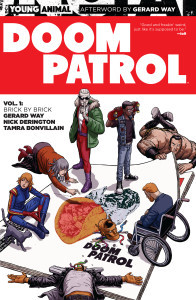 Well, for balance, I need 7 here, and I have certainly gone back to Doom Patrol (Grant Morrison, Richard Case, and now Gerard Way, Nick Derrington, Tamra Bonvillain and Todd Klein) this year (another option from DC would be the Morrison run on Animal Man). This is my favourite DC comic, surrealist escapades with the Brotherhood of Dada, a sentient free-living street and the same reverent respect for mainstream DC characters that Nextwave has for Marvel’s. My re-read is generally the six volumes of Morrison’s run, so I was somewhat leery about a new volume this year that was looking to recapture the same vibe. However, Way et al actually managed to square that circle imho and produce a worthy successor to the original.
Well, for balance, I need 7 here, and I have certainly gone back to Doom Patrol (Grant Morrison, Richard Case, and now Gerard Way, Nick Derrington, Tamra Bonvillain and Todd Klein) this year (another option from DC would be the Morrison run on Animal Man). This is my favourite DC comic, surrealist escapades with the Brotherhood of Dada, a sentient free-living street and the same reverent respect for mainstream DC characters that Nextwave has for Marvel’s. My re-read is generally the six volumes of Morrison’s run, so I was somewhat leery about a new volume this year that was looking to recapture the same vibe. However, Way et al actually managed to square that circle imho and produce a worthy successor to the original.
December 20, 2017
A Year in Film: 2017
I keep doing this, apparently. I’d thought I hadn’t watched much this year, but apparently I saw quite a few movies despite all the other shenanigans I got up to, and I am going to inflict my meagre opinions on you.
Firstly: yes, (and spoiler-free) I have seen The Last Jedi. I am of the camp that liked it (and divisive films has been a thing this year) – quite a lot, in fact. Not perfect, but perfect is vanishingly rare and I liked what it did and what it set out to do. I am not going to say any more about it just yet (1).
Secondly: there was something of a gap in the ranks this year. There wasn’t quite a successor to 2016’s Arrival (which won the crap out of the SF award scene) or 2015’s Ex Machina. So, no hands down intellectual SF winner for me. However…
 Marvel studios had three, count them, three movies out this year. Unless I missed one. Of these, I am very much in the minority in not loving Guardians of the Galaxy 2 as much as everyone else seemed to. It wasn’t a bad film by any means, but (and spoilers ahead) the first one was damn near perfect, and 2 hit some wrong notes for me. There were some really nice bits – I loved the golden civilization with their virtual warfare, and a lot of the comedy set pieces were good. I feel mean-spirited about ragging on it at all, tbh, because most of it was great. I am going to hide my gripes in a footnote (2). I am also going to take a moment to shove out a plug for Al Ewing and Adam Gorham comic Rocket which is goddamn fantastic.
Marvel studios had three, count them, three movies out this year. Unless I missed one. Of these, I am very much in the minority in not loving Guardians of the Galaxy 2 as much as everyone else seemed to. It wasn’t a bad film by any means, but (and spoilers ahead) the first one was damn near perfect, and 2 hit some wrong notes for me. There were some really nice bits – I loved the golden civilization with their virtual warfare, and a lot of the comedy set pieces were good. I feel mean-spirited about ragging on it at all, tbh, because most of it was great. I am going to hide my gripes in a footnote (2). I am also going to take a moment to shove out a plug for Al Ewing and Adam Gorham comic Rocket which is goddamn fantastic.
Spiderman: Homecoming worked better for me. It’s nice to see a small-scale superhero flick from the Marvel stable – arguably even smaller than Marvel’s Netflix TV offerings. Thank God we’re spared another Spiderman origin story, as the film just gets right to work with the webslinger. Michael Keaton, always worth the price of admission, is a surprise show-stealer and maybe one of Marvel’s best cinema villains along with Hiddleston’s Loki (because really catch villains are something of a flat note in the otherwise phenomenal canon they’ve put together).
Finally, Thor: Ragnarok. My oh my, what can I say. This, I think, is my film of the year for sheer joy value. This felt more the spiritual successor to the first Guardians film – a movie filled to the brim with character-driven comedy gold that still ran a serious plot from start to finish, had some interesting messages about the unthinking and unexamined veneration of the past and was just unabashedly fun from start to finish. The entire cast was note-perfect (Korg and Miek especially), and the result was the best Thor film and a strong contender (imho) for the best Marvel movie full stop.
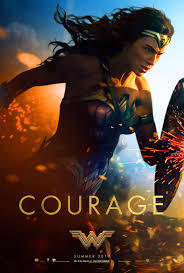 Most of the other films I’ve seen this year also seem to have been about superheroes, specifically a very strong couple of offerings from Marvel/Disney’s chief competitors. I’ve not much liked the X-Men films since the 2nd one (which was, to be fair, very good), but Logan was astonishingly emotive and powerful. Jackman and Stewart give incredibly personal, touching performances, supported by a very able cast (I particularly liked Stephen Merchant’s Caliban). This didn’t feel like a superhero movie at all (save perhaps for the relatively brief last act), but a study in loss and grief crossed with a David Gemmell novel. Speaking of which, Hugh Jackman would knock Druss out of the park if they ever made a movie of that.
Most of the other films I’ve seen this year also seem to have been about superheroes, specifically a very strong couple of offerings from Marvel/Disney’s chief competitors. I’ve not much liked the X-Men films since the 2nd one (which was, to be fair, very good), but Logan was astonishingly emotive and powerful. Jackman and Stewart give incredibly personal, touching performances, supported by a very able cast (I particularly liked Stephen Merchant’s Caliban). This didn’t feel like a superhero movie at all (save perhaps for the relatively brief last act), but a study in loss and grief crossed with a David Gemmell novel. Speaking of which, Hugh Jackman would knock Druss out of the park if they ever made a movie of that.
Wonder Woman also hit the right spot for me. I know some people who feel the last act (again with the last act!) degenerated into punching CGI things, but it all worked for me. Moreover, I liked the thought that Patti Jenkins, director, put into the details of the film – giving us a Great War that felt real whilst not being just the bland billboard history that it could so easily have been – see all the Asian troops waiting for deployment in London, for example.
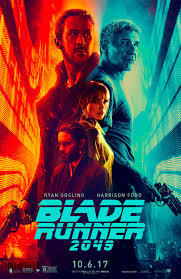 Finally, we have Blade Runner 2049, a particularly divisive piece. Again, I find myself coming down strongly in the “for” camp. This came closest to that elusive hi-brow SF slot, with a lot of interesting things to say about artificial people and artificial relationships. It was also beautiful, visually and audibly, which I think is probably a Villeneuve thing given what a fantastic job he did with Arrival. There were things I wanted to see more of (like the Replicant resistance) but it was a strong and elegant movie, a real work of art.
Finally, we have Blade Runner 2049, a particularly divisive piece. Again, I find myself coming down strongly in the “for” camp. This came closest to that elusive hi-brow SF slot, with a lot of interesting things to say about artificial people and artificial relationships. It was also beautiful, visually and audibly, which I think is probably a Villeneuve thing given what a fantastic job he did with Arrival. There were things I wanted to see more of (like the Replicant resistance) but it was a strong and elegant movie, a real work of art.
So: my tiny award goes to Thor: Ragnarok for combining sheer fun value with some solid plot, and here’s to next year.
(1) Emma Newman has a thoughtful audio-log on Last Jedi, absolutely crammed with spoilers. It’s here if you want it, and I generally agree with everything she has to say.
(2) Mantis seemed extraneous, Ego outed himself as a bad guy rather clumsily (“Oh yeah, I killed your mum”) and the extended eulogy sequence for Yondo suggested I was very out of step in how key I felt that character was.
December 13, 2017
A year in books: 2017
We are marching towards the end of a year of tumult and turbulence, and I am going to retreat from it and instead talk books at you. Specifically, I have read a metric crapton of books this year, and mostly I have blogged about them previous to this, so I will let those posts speak to me, vis:
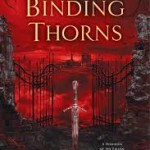
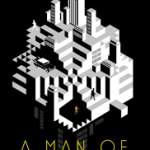 So here I extol the virtues of House of Binding Thorns (de Bodard), Who Killed Sherlock Holmes (Cornell), City of Blades (Bennett), Walkaway (Doctorow), Semiosis (Burke), A Man of Shadows (Noon), Brother’s Ruin (Newman E) and Azanian Bridges (Wood), and blimey that was a big old bottleneck of books.
So here I extol the virtues of House of Binding Thorns (de Bodard), Who Killed Sherlock Holmes (Cornell), City of Blades (Bennett), Walkaway (Doctorow), Semiosis (Burke), A Man of Shadows (Noon), Brother’s Ruin (Newman E) and Azanian Bridges (Wood), and blimey that was a big old bottleneck of books.

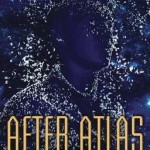 Then came the Clarke shortlist, which I particularly enjoyed this year. Here I go over A Closed and Common Orbit (Chambers) and Central Station (Tidhar); here Underground Railroad (Whitehead, the eventual winner) and After Atlas (Newman E), and here Occupy Me (Sullivan) and Ninefox Gambit (Lee).
Then came the Clarke shortlist, which I particularly enjoyed this year. Here I go over A Closed and Common Orbit (Chambers) and Central Station (Tidhar); here Underground Railroad (Whitehead, the eventual winner) and After Atlas (Newman E), and here Occupy Me (Sullivan) and Ninefox Gambit (Lee).
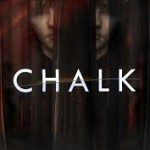
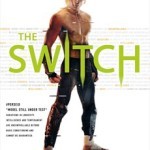 After that I got right back on the bike with All Good Things (Newman E again, I have been blessed with a lot of Emma’s work to chew on this year!), Chalk (Cornell) and then my first bite of the *(possibly fictional) “next generation” of fantasy writers with Kings of the Wyld (Eames), Age of Assassins (Barker) and The Court of Broken Knives (Smith Spark) and then, a bit later, Godblind (Stephens) and Blackwing (McDonald) along with Raven Stratagem (Lee again), The Seven (Newman P), The Death and Life of Schneider Wrack (Crowley), The Switch (Robson) and Zones of Thought (Vinge).
After that I got right back on the bike with All Good Things (Newman E again, I have been blessed with a lot of Emma’s work to chew on this year!), Chalk (Cornell) and then my first bite of the *(possibly fictional) “next generation” of fantasy writers with Kings of the Wyld (Eames), Age of Assassins (Barker) and The Court of Broken Knives (Smith Spark) and then, a bit later, Godblind (Stephens) and Blackwing (McDonald) along with Raven Stratagem (Lee again), The Seven (Newman P), The Death and Life of Schneider Wrack (Crowley), The Switch (Robson) and Zones of Thought (Vinge).

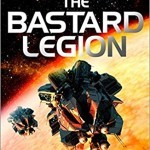 And finally (and I think I may have recc’d more books this year than ever before to be honest) Embers of War (Powell), The Bastard Legion (Smith), City of Lies (Hawke), Under the Pendulum Sun (Ng), Ada King (Faulds), Origamy (Armstrong) and A Time of Dread (Gwynne). Which makes for a packed year – but wait, there’s more!
And finally (and I think I may have recc’d more books this year than ever before to be honest) Embers of War (Powell), The Bastard Legion (Smith), City of Lies (Hawke), Under the Pendulum Sun (Ng), Ada King (Faulds), Origamy (Armstrong) and A Time of Dread (Gwynne). Which makes for a packed year – but wait, there’s more!
Because I don’t seem to have talked about the Newcon Press novella line – last year I read four SF novellas from Simon Morden, Anne Charnock, Neil Williamson and none other than Alastair Reynolds, and this year I caught their rather spectacular horror set, most of which have that kind of strong psychological “is it or isn’t it real?” sort of feature that always works for me. In this set we have Simon Clark’s Case of the Bedevilled Poet (a Sherlock Holmes – or is it – mystery), Sarah Lotz’ Body in the Woods (a very tight and nasty psychological thriller), Jay Caselberg’s The Wind (which is the most unambiguous of them in the sense of the Nasty is pretty much impossible to obfuscate, but no less good for all that), and my personal favourite, Alison Littlewood’s Cottingley, which gives a very nice (in the sense of vicious) spin on the titular fairy business.
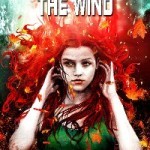

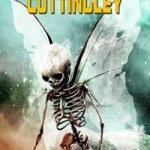
I also had an advance copy of Blackfish City by Sam J Miller turn up, which is an intriguing near future post-collapse book about an arctic city of all sorts of graft, grime and cultural cross-contamination, and the remarkable woman who turns up, for purposes unknown, accompanied by an orca and a polar bear, perhaps the last vengeful scion of an animal-bonded people who were hunted to extinction (or not) by reactionary mobs. This is an intriguing novel with that take on the future – on the balance between the grimly plausible and the speculative – that I’ve tried for myself in Dogs of War and Ironclads.

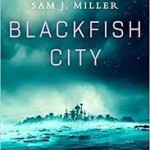
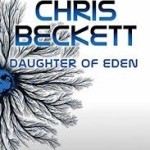 Finally, and very belatedly, I have finished off Chris Beckett’s Eden trilogy with Daughter of Eden. This remains one of my all-time favourite SF works, with an uncompromising look at how societies form (and malform), split and clash, and all without ever taking sides or demonising any one point of view. Beckett remains one of the best modern SF voices all round.
Finally, and very belatedly, I have finished off Chris Beckett’s Eden trilogy with Daughter of Eden. This remains one of my all-time favourite SF works, with an uncompromising look at how societies form (and malform), split and clash, and all without ever taking sides or demonising any one point of view. Beckett remains one of the best modern SF voices all round.
November 17, 2017
Catch up and yet more reading recs
 November’s various duties have been put behind me – thanks to everyone who turned up at the WS events. Also a huge thank you to the organisers of Novacon, where I was treated royally. It’s a great convention (longest running local con I think) and there was some excellent programming, including a fascinating lecture on exoplanets that came at a useful point in the current WIP.
November’s various duties have been put behind me – thanks to everyone who turned up at the WS events. Also a huge thank you to the organisers of Novacon, where I was treated royally. It’s a great convention (longest running local con I think) and there was some excellent programming, including a fascinating lecture on exoplanets that came at a useful point in the current WIP.
Second up: the audiobook for Guns of the Dawn is now available via Amazon. This is read by the incomparable Emma Newman (also one of the book’s greatest cheerleaders), and I’m literally listening to her reading of it as I type. She’s done a really good job, and if audiobooks are your thing then this is definitely one to grab.
Finally, I have read a remarkable number of books in the last few weeks, really far more than I would usually manage, and most of them excellent reads. I should say a word about me and book recommendations and impartiality. I don’t really review, per se. I am not a great critical assessor of books. All I can do is enthuse about books I’ve enjoyed and which I think have merit. I know a lot of the authors whose books I mention, because I tend to grab books by people I know, or else get offered copies of them. I do not, I hope, simply cheer on a book just because I know the author, but my sample is definitely skewed. Anyway, though, on with the recs:
 Firstly, I have had the benefit of a couple of truly top notch space operas recently. Embers of War is by Gareth Powell of Ack-Ack Macaque fame, telling the story of a mid-far future universe where humanity jostles elbows with alien civilisations in an universe littered with curios and ruins of elder cultures. The story takes place after a war that ended in a genocidal atrocity, and follows the perpetrator – not (only) the human who gave the order, but the AI ship that enacted it, which has since become a rescue vessel, trying to escape the knowledge of what it did. It’s a splendid story, and the emphasis on space rescue rather than space war is a particularly nice touch. Embers is out early next year.
Firstly, I have had the benefit of a couple of truly top notch space operas recently. Embers of War is by Gareth Powell of Ack-Ack Macaque fame, telling the story of a mid-far future universe where humanity jostles elbows with alien civilisations in an universe littered with curios and ruins of elder cultures. The story takes place after a war that ended in a genocidal atrocity, and follows the perpetrator – not (only) the human who gave the order, but the AI ship that enacted it, which has since become a rescue vessel, trying to escape the knowledge of what it did. It’s a splendid story, and the emphasis on space rescue rather than space war is a particularly nice touch. Embers is out early next year.  Meanwhile, Gavin Smith’s The Bastard Legion is out now and set in a universe that is… less well intentioned, let’s say. The lead here has stolen a prison barge complete with prisoners, slaved them with explosive collars and is using them as her private mercenary army. So far, so merciless, except there’s a whole hell of a lot going on with the protagonist and her prisoners than initially meets the eye. The characters are well drawn, the action fluid, fast, and excellently written. Both books are cracking reads, and if spaceship level SF is your thing then you should probably snap up both.
Meanwhile, Gavin Smith’s The Bastard Legion is out now and set in a universe that is… less well intentioned, let’s say. The lead here has stolen a prison barge complete with prisoners, slaved them with explosive collars and is using them as her private mercenary army. So far, so merciless, except there’s a whole hell of a lot going on with the protagonist and her prisoners than initially meets the eye. The characters are well drawn, the action fluid, fast, and excellently written. Both books are cracking reads, and if spaceship level SF is your thing then you should probably snap up both.
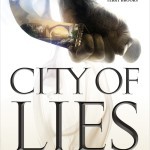 Another early proof I’ve had a look at is City of Lies, a debut novel (I think) from Sam Hawke coming out in mid-2018. This is a political fantasy full of intrigue and poison, not always my cup of tea, but in this case I was absolutely engrossed. The chapter headings start with descriptions of toxins and their effects, but rather than an assassin, our first lead is a poison proofer, dedicated to protect his close friend and noble superior from gustatory murder. Unusually for a book concerned with nobles and the machinations of the rich, there’s a whole hell of a lot of examining power structures and injustice, and the society presented is most certainly not the whitewashed and sanitised pseudo-history that fantasy cities can devolve into. I ate this one up in a couple of days despite a respectable page count. All good stuff.
Another early proof I’ve had a look at is City of Lies, a debut novel (I think) from Sam Hawke coming out in mid-2018. This is a political fantasy full of intrigue and poison, not always my cup of tea, but in this case I was absolutely engrossed. The chapter headings start with descriptions of toxins and their effects, but rather than an assassin, our first lead is a poison proofer, dedicated to protect his close friend and noble superior from gustatory murder. Unusually for a book concerned with nobles and the machinations of the rich, there’s a whole hell of a lot of examining power structures and injustice, and the society presented is most certainly not the whitewashed and sanitised pseudo-history that fantasy cities can devolve into. I ate this one up in a couple of days despite a respectable page count. All good stuff.
 Under the Pendulum Sun by Jeanette Ng comes next, another debut by an author I used to Larp with (in fact there seem to have been a disproportionate number of authors-in-waiting in that company). I was delighted to hear she had signed on with Angry Robot, and her first novel is elegantly written and of an intriguing subject matter: it is the story of a Victorian missionary’s sister, joining her brother as he strives to convert the natives of… Arcadia, as in fairyland. And these are the bad old fairies, the cruel, the random, the baffling, and the siblings Helstone are beset on all sides by lies, and sometimes by even worse truths. It’s a story of cruelty, theology and some truly great characters (although I couldn’t not see Benjamin the gnome as Hoggle from Labyrinth.)
Under the Pendulum Sun by Jeanette Ng comes next, another debut by an author I used to Larp with (in fact there seem to have been a disproportionate number of authors-in-waiting in that company). I was delighted to hear she had signed on with Angry Robot, and her first novel is elegantly written and of an intriguing subject matter: it is the story of a Victorian missionary’s sister, joining her brother as he strives to convert the natives of… Arcadia, as in fairyland. And these are the bad old fairies, the cruel, the random, the baffling, and the siblings Helstone are beset on all sides by lies, and sometimes by even worse truths. It’s a story of cruelty, theology and some truly great characters (although I couldn’t not see Benjamin the gnome as Hoggle from Labyrinth.)
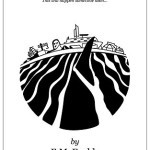 Now some more SF, and a couple of books you might not come across under normal circumstances, but which you should definitely look out. I owe fellow author Allen Stroud a big debt for introducing me to EM Faulds’ Ada King, which is currently self-published, but available in print through Amazon. This is a mid-near future of monolithic repressive states that maintain no civilian communications, each one indoctrinating its citizens with its own version of global truth. Ada King is an unorthodox genius, from her childhood haunted by companions that only she can see, but which serve as visual markers for her intuition and understanding. Fleeing the oppression of her birth-state she ends up on a floating free city despised by all the states, and on the brink of a triumph that could bring the world down. This is a fantastic read, full of solid SF and with a number of nice twists and turns before the end.
Now some more SF, and a couple of books you might not come across under normal circumstances, but which you should definitely look out. I owe fellow author Allen Stroud a big debt for introducing me to EM Faulds’ Ada King, which is currently self-published, but available in print through Amazon. This is a mid-near future of monolithic repressive states that maintain no civilian communications, each one indoctrinating its citizens with its own version of global truth. Ada King is an unorthodox genius, from her childhood haunted by companions that only she can see, but which serve as visual markers for her intuition and understanding. Fleeing the oppression of her birth-state she ends up on a floating free city despised by all the states, and on the brink of a triumph that could bring the world down. This is a fantastic read, full of solid SF and with a number of nice twists and turns before the end.
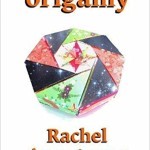 The other book that really got me fired up is Rachel Armstrong’s Origamy, to be released next year by Newcon Press. This is… a hard book to do justice to, to be honest. The narrator is a member of an extended circus family of acrobats and space-time weavers, and their point of view deals with familial squabbles (with their innumerable siblings and her impossible (literally) parents), physical contortions and high level physics in the same off-the-cuff tongue-in-cheek way, not really drawing much distinction between eating a sandwich or skipping across the threads of the universe. It reminds me a little of Moorcock’s Jerry Cornelius and his other weird stuff, but mostly it is its own brand of weirdness, which is at the same time entirely accessible (and I am by no means a physicist). It’s one of the most engaging and astonishing books I’ve read, really eye-opening and utterly different.
The other book that really got me fired up is Rachel Armstrong’s Origamy, to be released next year by Newcon Press. This is… a hard book to do justice to, to be honest. The narrator is a member of an extended circus family of acrobats and space-time weavers, and their point of view deals with familial squabbles (with their innumerable siblings and her impossible (literally) parents), physical contortions and high level physics in the same off-the-cuff tongue-in-cheek way, not really drawing much distinction between eating a sandwich or skipping across the threads of the universe. It reminds me a little of Moorcock’s Jerry Cornelius and his other weird stuff, but mostly it is its own brand of weirdness, which is at the same time entirely accessible (and I am by no means a physicist). It’s one of the most engaging and astonishing books I’ve read, really eye-opening and utterly different.
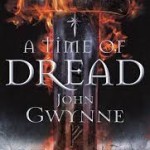 Finally, another fantasy: I had an advance copy of John Gwynne’s A Time of Dread, which is out very soon. This is a real David Gemmell-style epic fantasy, the start of a new series linked to John’s previous work, but readily consumable on its own. The story follows a number of characters in a world “saved” by angelic beings who are still hunting their fallen kin across the world, and insisting everyone else sheds blood in their cause as well. The fallen angel types are definitely bad news, but so are the regular kind in a different way, and the humans and giants are stuck in the middle. Gwynne is one of the very best out there for this kind of high action fantasy, and his love of history and period warfare also shines through – he’s someone who really knows what he’s talking about and builds a really solid world.
Finally, another fantasy: I had an advance copy of John Gwynne’s A Time of Dread, which is out very soon. This is a real David Gemmell-style epic fantasy, the start of a new series linked to John’s previous work, but readily consumable on its own. The story follows a number of characters in a world “saved” by angelic beings who are still hunting their fallen kin across the world, and insisting everyone else sheds blood in their cause as well. The fallen angel types are definitely bad news, but so are the regular kind in a different way, and the humans and giants are stuck in the middle. Gwynne is one of the very best out there for this kind of high action fantasy, and his love of history and period warfare also shines through – he’s someone who really knows what he’s talking about and builds a really solid world.
Ada King
Under the Pendulum Sun
Origamy
October 20, 2017
November Events
Just a quick note for some upcoming events next month:
1st November 2017 – Waterstones bookshop Leeds – 18.30 – Dogs of War release event including me being interviewed by David Tallerman.
10-12th November 2017 Novacon at the Park Inn Hotel, Nottingham, including a variety of convention standards, at which I’ll be Guest of Honour.
14th November 2017 Waterstones bookshop Tottenham Court Road, London, SF Showcase with Chris Beckett, Justina Robson and Laurie Penny. I’ll also be signing stock for Forbidden Planet on the same day if you’re after a signed copy of Dogs.



